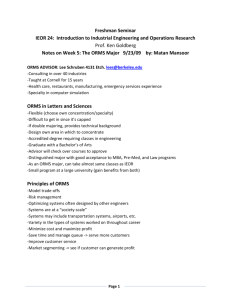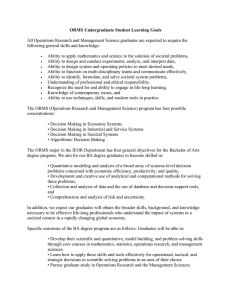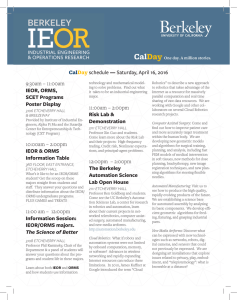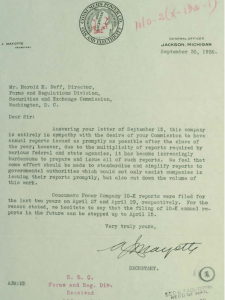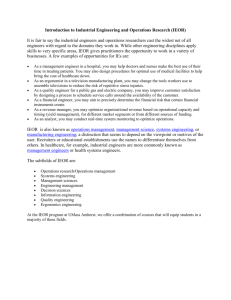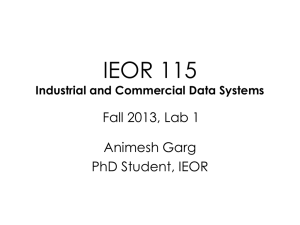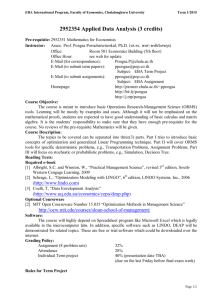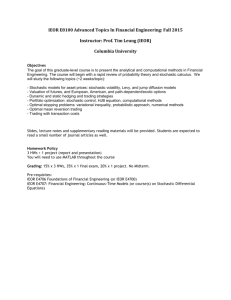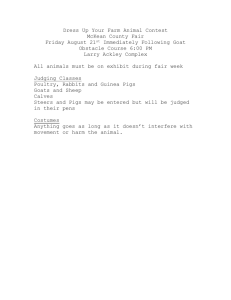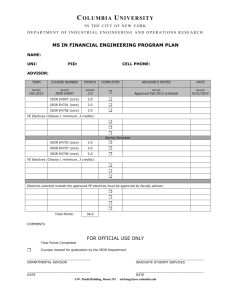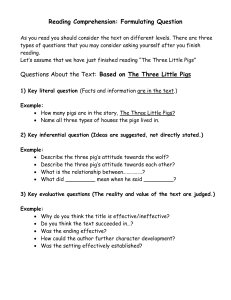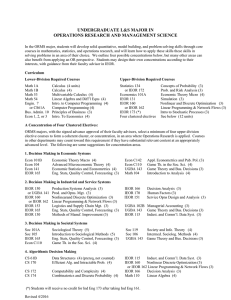Week Five - Ken Goldberg
advertisement
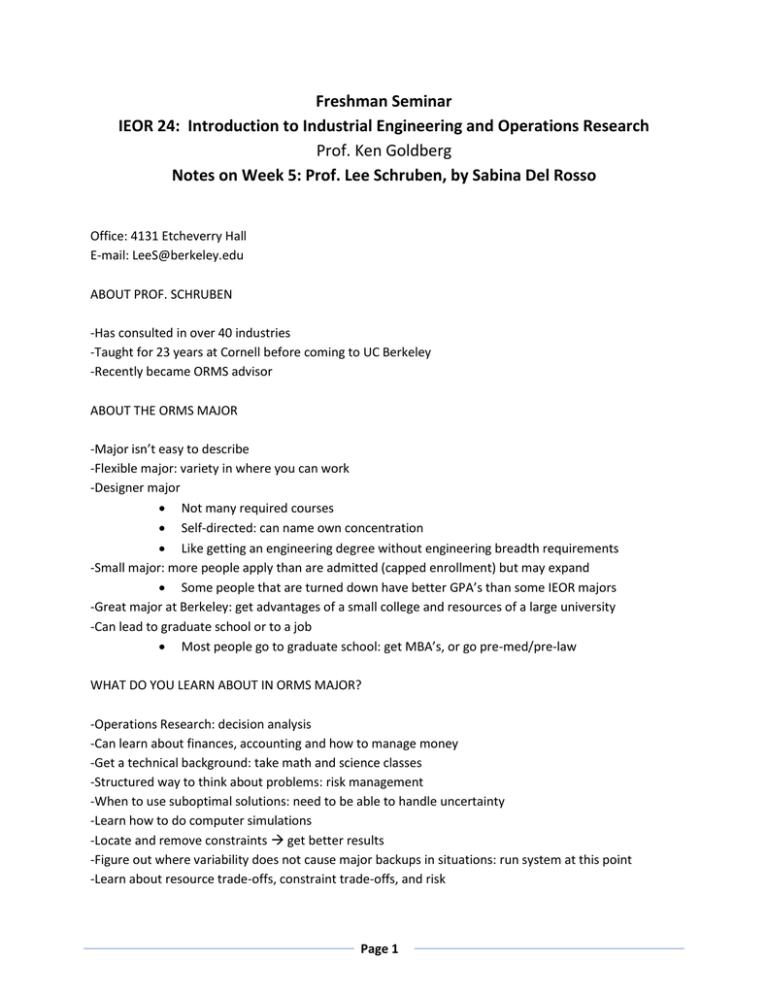
Freshman Seminar IEOR 24: Introduction to Industrial Engineering and Operations Research Prof. Ken Goldberg Notes on Week 5: Prof. Lee Schruben, by Sabina Del Rosso Office: 4131 Etcheverry Hall E-mail: LeeS@berkeley.edu ABOUT PROF. SCHRUBEN -Has consulted in over 40 industries -Taught for 23 years at Cornell before coming to UC Berkeley -Recently became ORMS advisor ABOUT THE ORMS MAJOR -Major isn’t easy to describe -Flexible major: variety in where you can work -Designer major Not many required courses Self-directed: can name own concentration Like getting an engineering degree without engineering breadth requirements -Small major: more people apply than are admitted (capped enrollment) but may expand Some people that are turned down have better GPA’s than some IEOR majors -Great major at Berkeley: get advantages of a small college and resources of a large university -Can lead to graduate school or to a job Most people go to graduate school: get MBA’s, or go pre-med/pre-law WHAT DO YOU LEARN ABOUT IN ORMS MAJOR? -Operations Research: decision analysis -Can learn about finances, accounting and how to manage money -Get a technical background: take math and science classes -Structured way to think about problems: risk management -When to use suboptimal solutions: need to be able to handle uncertainty -Learn how to do computer simulations -Locate and remove constraints get better results -Figure out where variability does not cause major backups in situations: run system at this point -Learn about resource trade-offs, constraint trade-offs, and risk Page 1 -Find optimal design of a system (includes components made by other engineers) -Look at reasons for why you want a particular result WHAT IS THE DIFFERENCE BETWEEN IEOR AND ORMS? -IEOR is an accredited engineering degree -IEOR gives students a broad set of tools Go to graduate school or work for a couple of years to find specialty -ORMS has a concentration: find what you are interested in WHAT ARE SOME FIELDS ORMS IS USED IS? 1. Agriculture -Has consulted at Gerber Foods and Burger King 2. Entertainment -Fastpass system at Disneyland -Scheduling monorail system at Disneyland -Golf courses: Need to get people through the course quickly Achieve this by giving each hole a name instead of a number Golfers no longer feel a need to go in sequential order which decreases overall wait time -TV commercial spots: Sell time slots to different companies by guaranteeing ratings Some time slots can be bid on up until the time the ad actually airs Involves a complicated optimization scheme 3. Factories -General Mills: Factory in Buffalo, NY makes cheerios but was running out of cheerios Need to slow process down: made more by working slower o Bottlenecks and jams were occurring when machines went fast o Lines were getting built up and the oven making cheerios had to be shut down o Variability congestion o Create overlap so cues build up on all machines and not just a few 4. Financial Systems -Create ways to save time, manage cues, and make a profit 5. Hospitality -Work in hotel industry 6. Quarantine -Figure out how to run a quarantine while dealing with the ethical issues for societal systems Page 2 -Created a mathematical model to help with outbreak of hog cholera in Florida How many healthy pigs do you kill before you stop killing pigs? o To be 100% sure, you have to kill all pigs -Mad cow disease: “England has made cow disease, Europe does not” Try to quarantine England but it didn’t work 7. Media -Do simulations for video games and create animation 8. Transportation -Scheduling for airlines: where each plane lands and which gates each plane goes to -Facility design: baggage flow in airports Page 3
